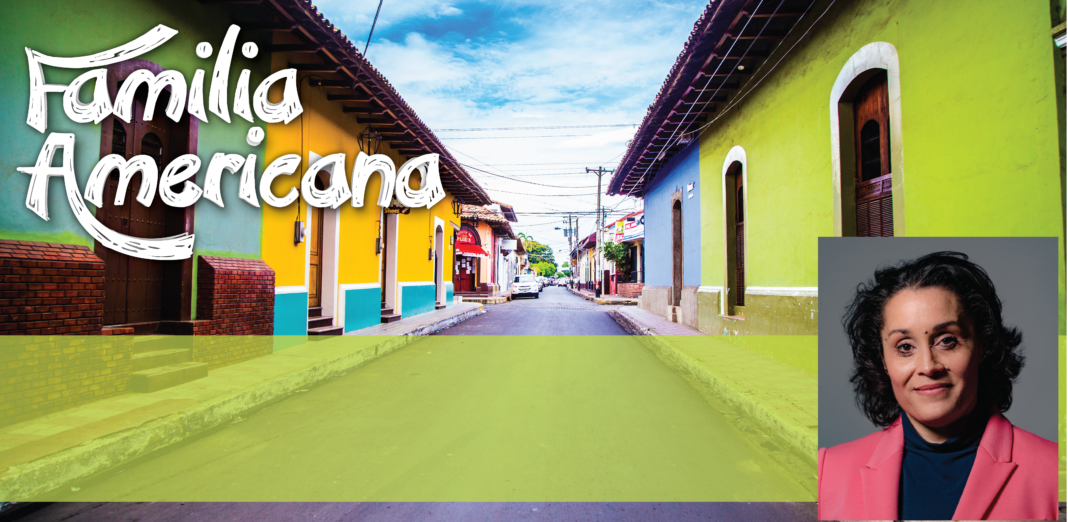Familia Americana: Is Free Speech Absolute?
To what extent is free speech, free? The First Amendment of the United States Constitution grants us the freedom of expression; this includes freedom of speech, of association, of assembly and petition. Freedom of expression is a backbone of democracy and should be defended. But where speech is concerned, do those who spew hatred have as much right to speak freely as those who speak kindly?
On October 7, 2023 the Hamas terrorist organization waged war on Israel when they invaded and proceeded to kill over 1,400 Israelis and foreigners, and abduct over 240 people (children – babies as young as 10 months old and children orphaned on that day in addition to women, men, and the elderly.) Hamas terrorists caught Israel by surprise and successfully carried out their attack by land, air, and sea. Israel is now one month into a military operation to destroy Hamas once and for all. Make no mistake. Israel has the right to exist. Israel has the right to defend itself and live in peace. As a result of their military might, Israel has been the bearer of criticism from countries around the world and their citizens. Our country is no exception.
In America, anti-Jewish hate speech and antisemitism are on the rise. At our universities, incendiary speech and hostile ‘calls to action’ are the new norm. Examples are many:
On university campuses across the nation, students celebrate the second deadliest attack against the Jewish people since the Holocaust. We see rallies on campuses in support of Hamas, students waving ISIS and Al-Qaeda flags with banners that call for the destruction of the Israeli state, and chanting of Hamas’ most well-known battle cry (which calls for the total annihilation of Israel): “From the river to the sea, Palestine will be free.” In other words, from the river Jordan to the Mediterranean Sea, the entire region of Israel shall no longer be.
University professors have joined the antisemitic movement of their students. On October 15, at Cornell University, associate professor of history Russell Rickford participated in a pro-Palestinian rally in which he called the brutal massacre of October 7 “exhilarating” and “energizing” and that the attacks “shifted the balance of politics and punctured the illusion of invincibility” of Israel. A university professor at one of the most prestigious universities in the country, siding with terrorism and celebrating a massacre!
At Emory University, associate professor Dr. Abeer AbouYabis made antisemitic comments on her social media account and was immediately put on leave. In one post on October 8, AbouYabis included a poem with the lines: “They got walls we got gliders Glory to all resistance fighters.” – Making mention of the air attack waged by Hamas in which terrorists landed in gliders. She, too, celebrated the massacre.
At the University of California Law School at Berkeley, several clubs amended their rules to prohibit any Zionists from speaking and presenting “other ideas” than ending Israel. “Free speech for me but not for thee” at institutions of higher learning.
At the University of California Los Angeles, students hung a piñata and yelled “beat that f-ing Jew” as they took turns beating it with a stick. Absolutely despicable!
But the most alarming antisemitic event since October 7 occurred at Cornell University where Patrick Dai, a 21-year-old junior, was arrested for “threatening to kill or injure another.” Dai threatened to go after Cornell’s Jewish students and “shoot up” the university’s predominantly kosher dining hall. In his online posts, Dai stated his desire to kill and rape Jewish students.
All of these examples are similar in nature. They are vile, hateful, and incendiary. They pose a threat and real danger to the Jewish student population and community as a whole. But in Dai’s case, by making horrendous death threats, his hate speech was outside of the window of protection by the First Amendment. His speech stretched the limits of self-expression and moved into a real threat to kill or harm another person.
Speech is an act of self-expression, as hateful and discriminatory as it might be. Banning speech that is disliked is problematic. Whoever dislikes the speech can ban it, censor it, and go after the person speaking. When government gets involved, you wind up with a society in which the ideas that are permitted to be expressed are those which are approved by the state. In effect, you lose some of your freedom. And we are seeing this daily with the rollout of the Diversity, Equity, and Inclusion (DEI) programs that attempt to control what you think, say, and how you view the world.
But we also live in a civil society, with laws and norms that all citizens are expected to follow. And in America, unless the speech is directly threatening or violently provocative, it is protected by the First Amendment. It is safe to say that free speech is therefore “free” to the extent that it harms another person – and even then, free speech is subject to interpretation by the Courts.
Words have meaning and consequences. Speech is powerful. Freedom of expression in this country is one of the most permissive in the world but we see that it too has limits. The boundaries of free speech are lenient but not absolute. Let us remember to not take this important freedom for granted.















